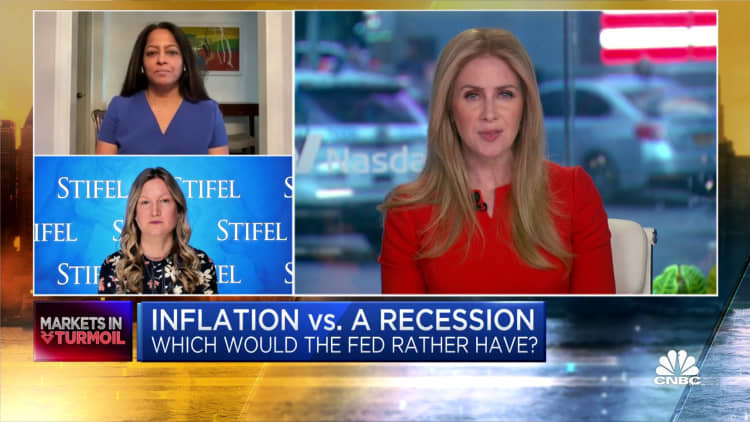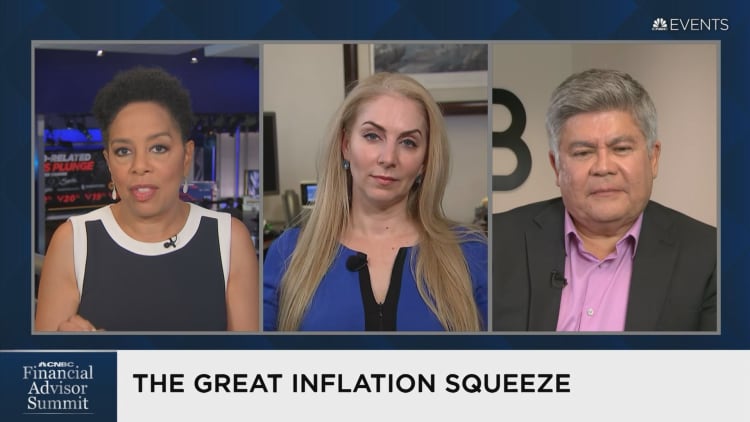Retirees and those planning to retire soon are the people most threatened by high inflation, investment managers and financial experts said at CNBC's Financial Advisor Summit.
Inflation means a dollar today can buy fewer groceries and other household staples than it did a year ago, on average.
Some inflation is expected in a healthy economy. But prices for consumer goods and services are rising at their fastest pace in 40 years. The torrid pace over the last several months has eroded household purchasing power more quickly than usual, which has been especially challenging for those living on fixed incomes.
"The biggest risk is actually for those that are retired," Nancy Davis, founder and managing partner of asset manager Quadratic Capital Management, said of inflation.
People who are working are still getting paychecks from their employer. Their wages grew 6.1% over the past year — the fastest annual pace in at least 25 years, according to the Federal Reserve Bank of Atlanta. (Their data dates to 1997.)
The job market has been hot, pushing businesses to raise pay. Though the average worker's wages haven't kept pace with inflation (which was 8.6% in the year through May), some have come out ahead.

But many retirees are no longer getting a paycheck — they're living on income from their investments (in 401(k) plans and individual retirement accounts, for example) and regular checks from sources such as Social Security, pensions and annuities.
Relative to investments, retirees with ample cash are seeing the value of that stockpile decline faster than usual due to inflation and paltry interest rates — which means they must withdraw more cash to fund their usual expenses.
Meanwhile, stocks and bonds are both down significantly this year. The S&P 500 Index entered a "bear market" this week for the first time since March 2020. The dynamic makes it challenging for retirees (especially new retirees) to fund their lifestyle using their investment portfolio without risking a financial shortfall later.
Relative to guaranteed income, Social Security offers an annual cost of living adjustment. Recipients got a 5.9% boost to benefits this year, which was the largest in about 40 years but still lags May's inflation reading; next year's adjustment may be even higher.
But most pensions don't adjust beneficiaries' income upwards. Those that do generally raise benefits by 2% to 3% each year — less than half the current pace of inflation.
Longer lives
Further, Americans are generally living longer lives, which means their money must stretch over more time in retirement.
Therefore, many retirees should have at least some stock exposure in their investment portfolios, since stocks have more long-term growth potential than assets such as bonds and cash, according to financial advisors.
But the recent market plunge (and the one back in early 2020) spooked many clients, who sold stocks in favor of cash and haven't bought back in yet, according to Louis Barajas, president and partner at MGO Wealth Advisors in Newport Beach, California.
We are financial therapists right now. We are holding our clients' hands.Louis Barajaspresident and partner at MGO Wealth Advisors
"So we have to get money invested back in equities," said Barajas, a certified financial planner.
For clients of all ages, inflation is having the biggest impact on their cash flow, which is in a "tight squeeze," he said. His conversations with worried clients have largely focused on the basics: understanding their financial goals and knowing how much money they need.
"We are financial therapists right now," Barajas added. "We are holding our clients' hands."






